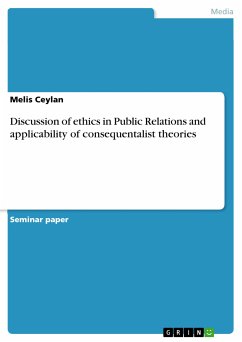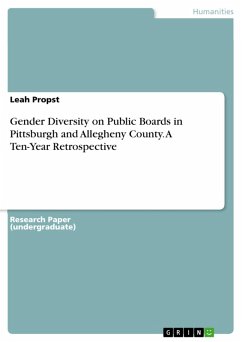Seminar paper from the year 2007 in the subject Communications - Theories, Models, Terms and Definitions, grade: MA, Bournemouth University, language: English, abstract: INTRODUCTION There are different kinds of theories which try to acquire a basis for ethical behaviour. Consequentialist theories are used in this essay as ethical theories for public relations. The best known consequentialist theory, utilitarianism, declares that actions of public relations practitioners must be judged by the usefulness they cause. This is also known as teleological approach, which means the study of ends.The opposite approach, deontological, focuses on the duty to respect other people’s rights (Tench and Yeomans, 2006). Public relations ethics focuses on the ways which would help to overcome the problems of organisations within the public relations and communications (Parsons, 2004). According to Seitel (2001), public relations practitioners must consult with their clients in an ethical way. Public Relations Society of America (PRSA) has worked hard on building strong ethics mentality among its members. This essay firstly introduces the role of public relations, practitioners’ aspects of social responsibility which enables to reach the organisational goals and the ethical media relations (Parsons, 2004). Further on, it is focused on the ethical dilemmas and decision making processes in order to discuss about whether PR practitioners make ethical decisions or not (Parsons, 2004). After this stage, teleological and deontological approaches are used to assess practitioners’ actions from utility or duty based aspects (Tench and Yeomans, 2006). The Role of Public Relations and The Practitioners’ Aspect of Ethics According to Tench and Yeomans (2006), Public Relations (PR) does not have one specific definition. In other words, there are some different ideas about PR which are commonly used by both the academics and practitioners. PR helps to sustain mutual communication between an organisation and its publics in order to be responsive to publics’ requests by the help of using research methods (Harlow, 1976:36 cited in Tench and Yeomans, 2006). Public Relation’s Role is explained under these headings by Parsons (2004):









